Services
Your home to wellness
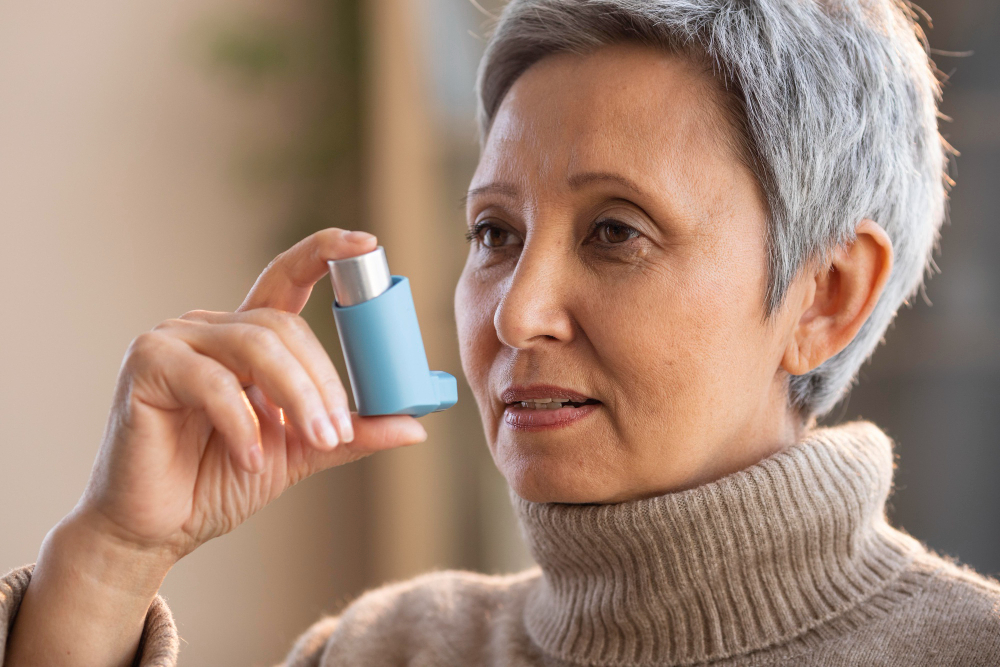
Allergy and Asthma
Garvit Hospital likely offers comprehensive services for allergy and asthma, including skin prick tests, blood tests, and patch tests for diagnosis. Treatment options may include medications (antihistamines, corticosteroids) and allergen immunotherapy. Their goal is to provide accurate diagnosis and effective management of allergy and asthma conditions.
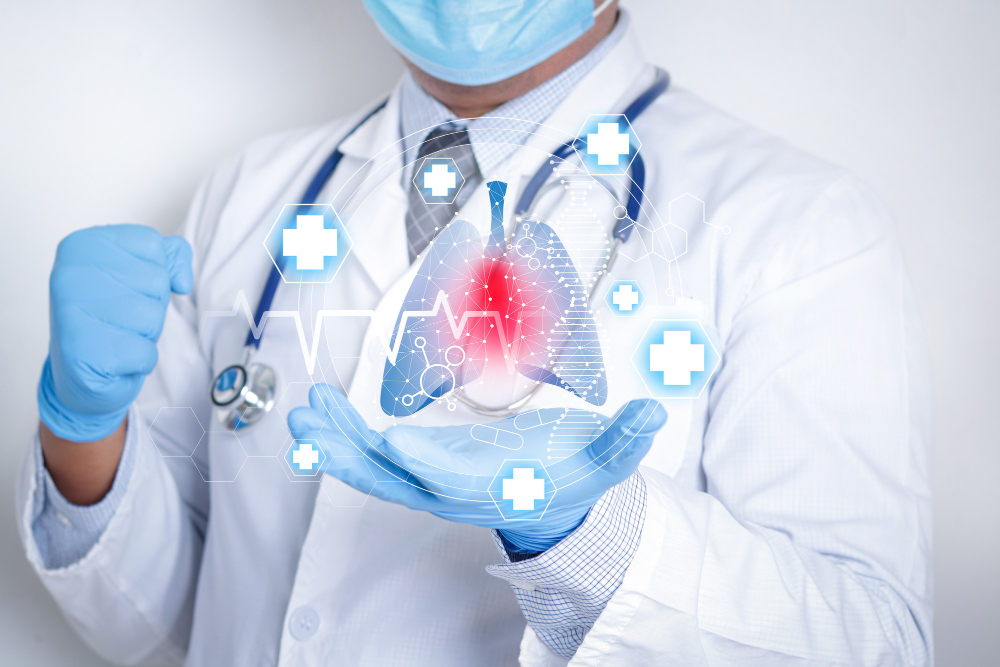
Chronic Obstructive Pulmonary Disease (COPD)
We at Garvit Hospital likely provides services for diagnosing and managing Chronic Obstructive Pulmonary Disease (COPD). This includes pulmonary function tests (spirometry), imaging (chest X-rays or CT scans), and blood tests. Treatment options may involve bronchodilators, corticosteroids, pulmonary rehabilitation, and oxygen therapy to manage and improve symptoms.
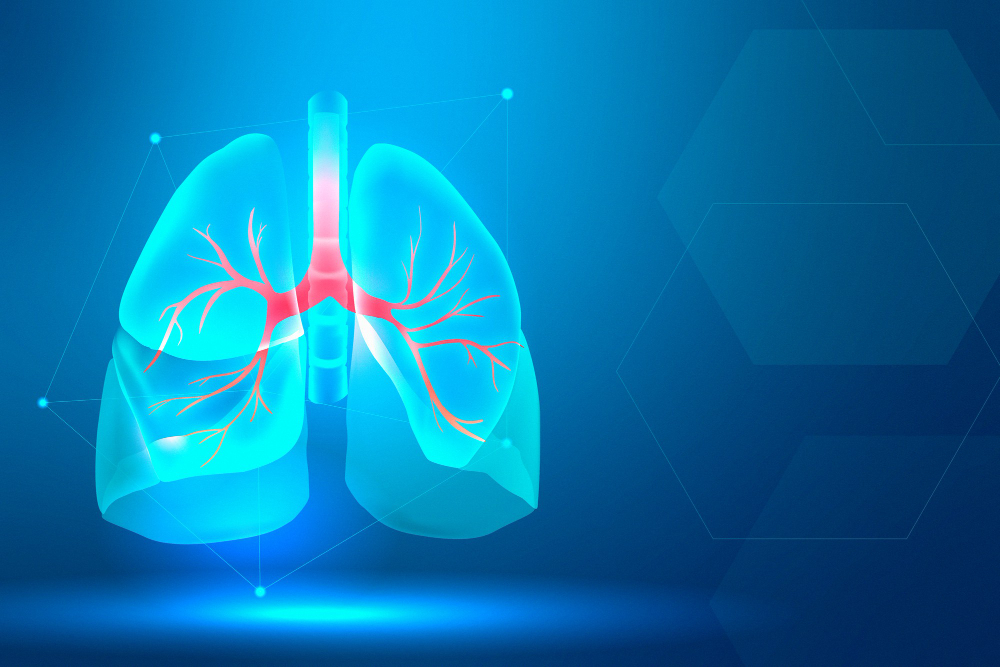
Interstitial Lung Diseases
Diagnostics for Interstitial Lung Diseases (ILD) typically include high-resolution CT scans, pulmonary function tests, and lung biopsies. Treatment options often involve corticosteroids, immunosuppressive agents, and antifibrotic therapies to manage symptoms and slow disease progression. Comprehensive care plans may also include pulmonary rehabilitation.

Snoring and Sleep Apnea
Diagnosis and treatment for snoring and sleep apnea typically involve sleep studies (polysomnography), lifestyle modifications, and medical interventions. Common treatments include Continuous Positive Airway Pressure (CPAP) therapy, oral appliances, and sometimes surgical options. Managing these conditions aims to improve sleep quality and overall health.
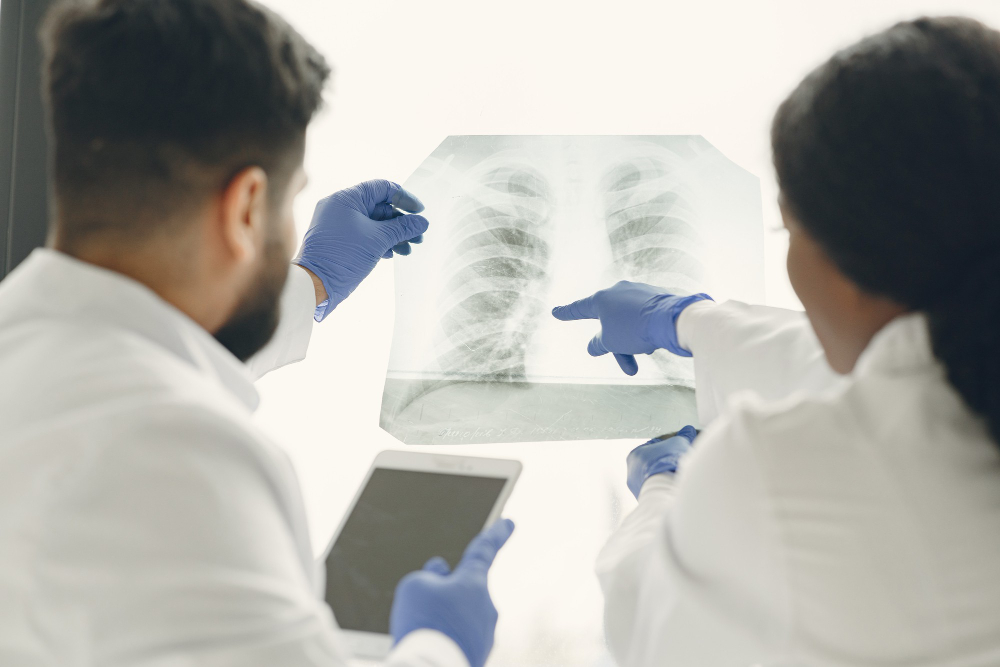
Bronchoscopic Procedures
Bronchoscopic procedures are minimally invasive techniques used to diagnose and treat lung conditions. They include biopsies, bronchoalveolar lavage (BAL), and endobronchial ultrasound (EBUS) for diagnosing diseases and infections. Treatment options through bronchoscopy include removing obstructions, laser therapy for tumors, and stent placement to keep airways open. These procedures are crucial for effective pulmonary care.

Food Allergy, Allergic Rhinitis, Allergen Immunotherapy
Diagnosis and treatment for food allergy and allergic rhinitis include skin prick tests, blood tests, and elimination diets. Allergen immunotherapy, such as subcutaneous or sublingual treatments, helps desensitize the immune system to specific allergens. These approaches aim to reduce symptoms and improve the quality of life for individuals with allergic conditions.
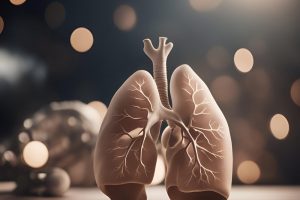
Silicosis
Silicosis is a lung disease caused by inhaling crystalline silica dust, commonly found in industries like mining, construction, and manufacturing. Diagnosis involves imaging tests (X-rays, CT scans), pulmonary function tests, and sometimes lung biopsies. Treatment focuses on symptom management and may include oxygen therapy, bronchodilators, and corticosteroids. Prevention through dust control and protective equipment is crucial.

Chest Tightness
Chest tightness is a sensation of pressure or discomfort in the chest area, often associated with conditions like asthma, anxiety, or heart problems. It may also occur due to respiratory infections, allergies, or muscular issues. Diagnosis involves medical evaluation, including physical exams, imaging tests, and possibly pulmonary function tests. Treatment depends on the underlying cause and may include medications, lifestyle changes, or therapy.

Cough with Blood
Coughing up blood, or hemoptysis, can indicate infections, lung conditions, or injuries. Diagnosis involves medical evaluation, imaging tests, and possibly bronchoscopy. Treatment depends on the cause, ranging from antibiotics to surgery or chemotherapy. Immediate medical attention is crucial for this symptom to determine its underlying cause and provide appropriate care.
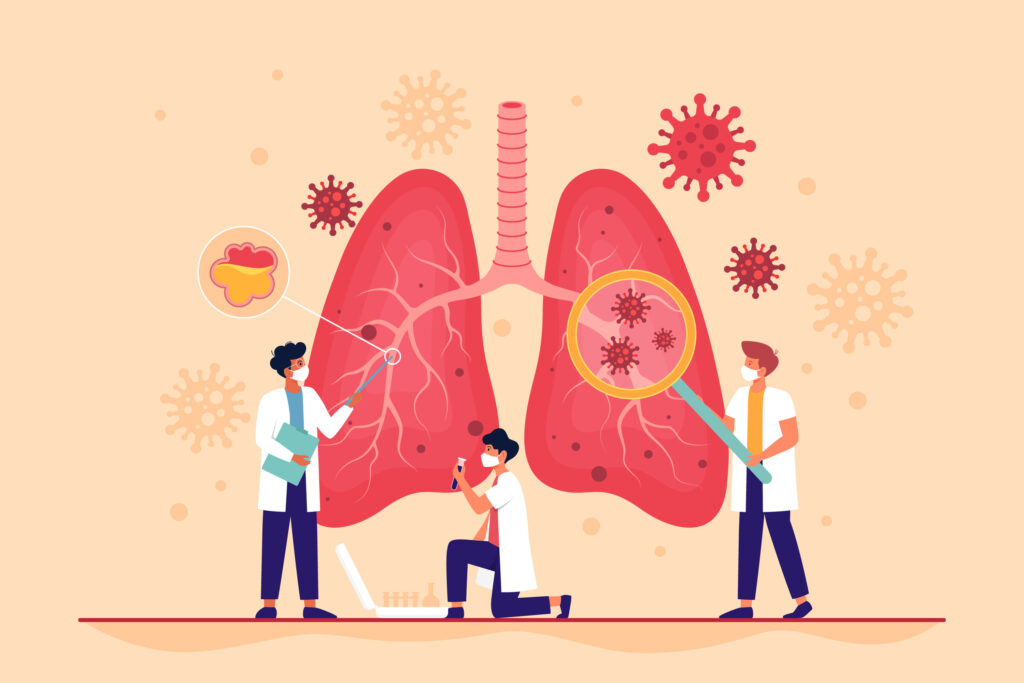
Lung Cancer
Lung cancer is a malignancy that starts in the lungs, often linked to smoking but can also occur in non-smokers due to genetic factors or environmental exposures. Symptoms may include persistent cough, chest pain, and weight loss. Diagnosis involves imaging tests, biopsies, and staging to determine the extent of the disease. Treatment options include surgery, chemotherapy, radiation therapy, and targeted therapy, depending on the cancer type and stage. Early detection is critical for better outcomes.
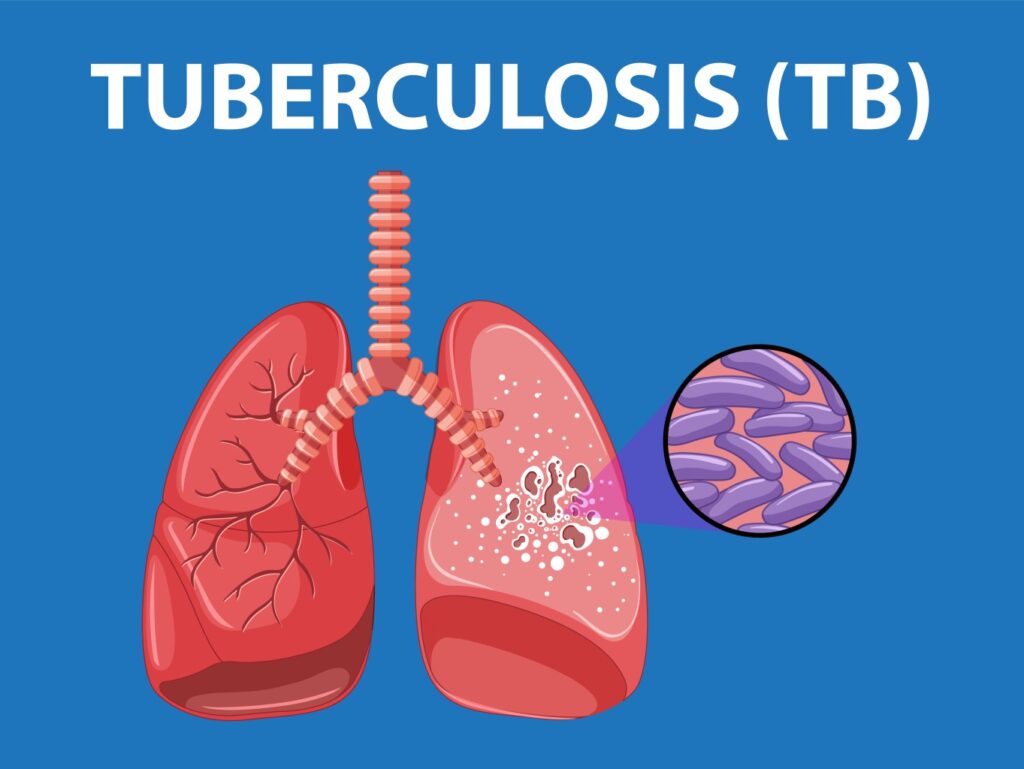
T.B. (Tuberculosis)
Tuberculosis (TB) is a bacterial infection caused by Mycobacterium tuberculosis, primarily affecting the lungs but can also affect other organs. Symptoms include coughing, fever, weight loss, and night sweats. Diagnosis involves imaging tests, sputum tests, and sometimes biopsies. Treatment requires antibiotics over several months to eradicate the bacteria. TB can be prevented with vaccination and infection control measures, especially in high-risk populations.
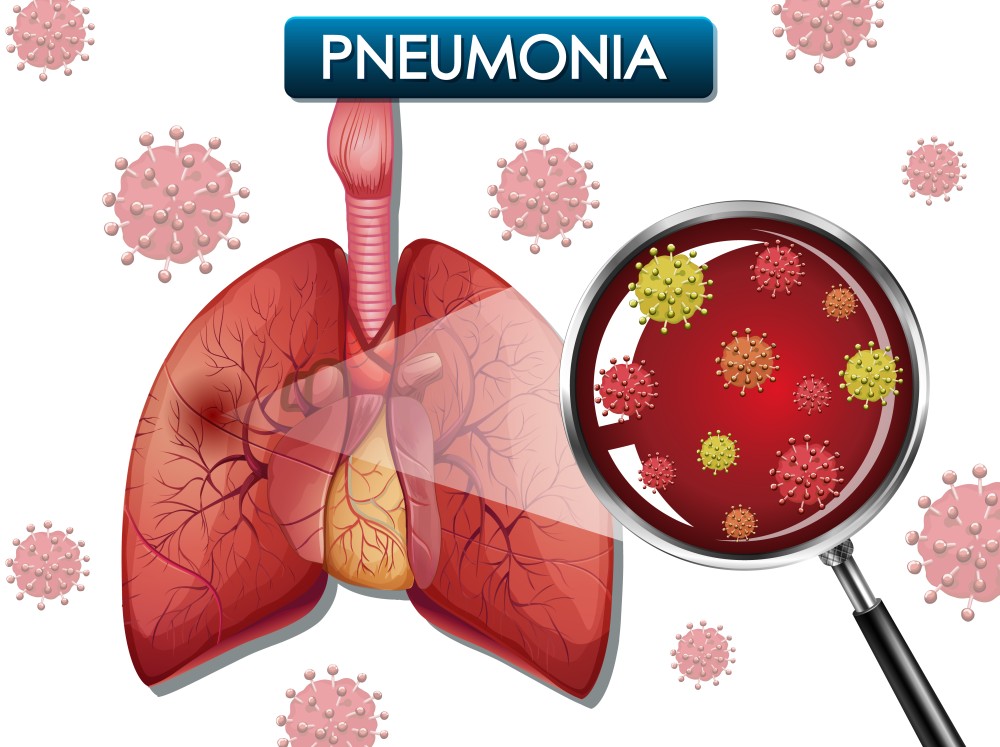
Pneumonia
Pneumonia is an infection causing lung inflammation, leading to cough, fever, and breathing difficulties. It's caused by bacteria, viruses, or fungi. Diagnosis involves exams, chest X-rays, and sometimes blood tests or cultures. Treatment includes antibiotics, rest, and supportive care. Prevention through vaccines and hygiene is crucial. Complications can arise, especially in vulnerable populations, emphasizing the importance of prompt diagnosis and treatment.